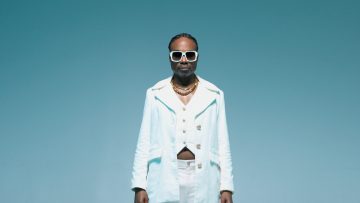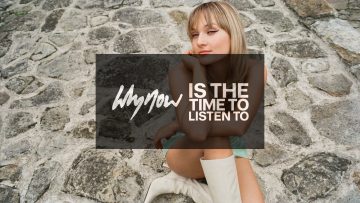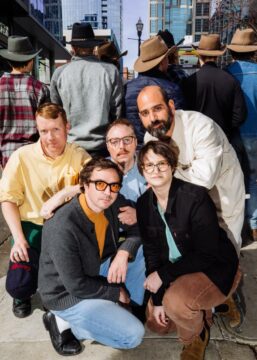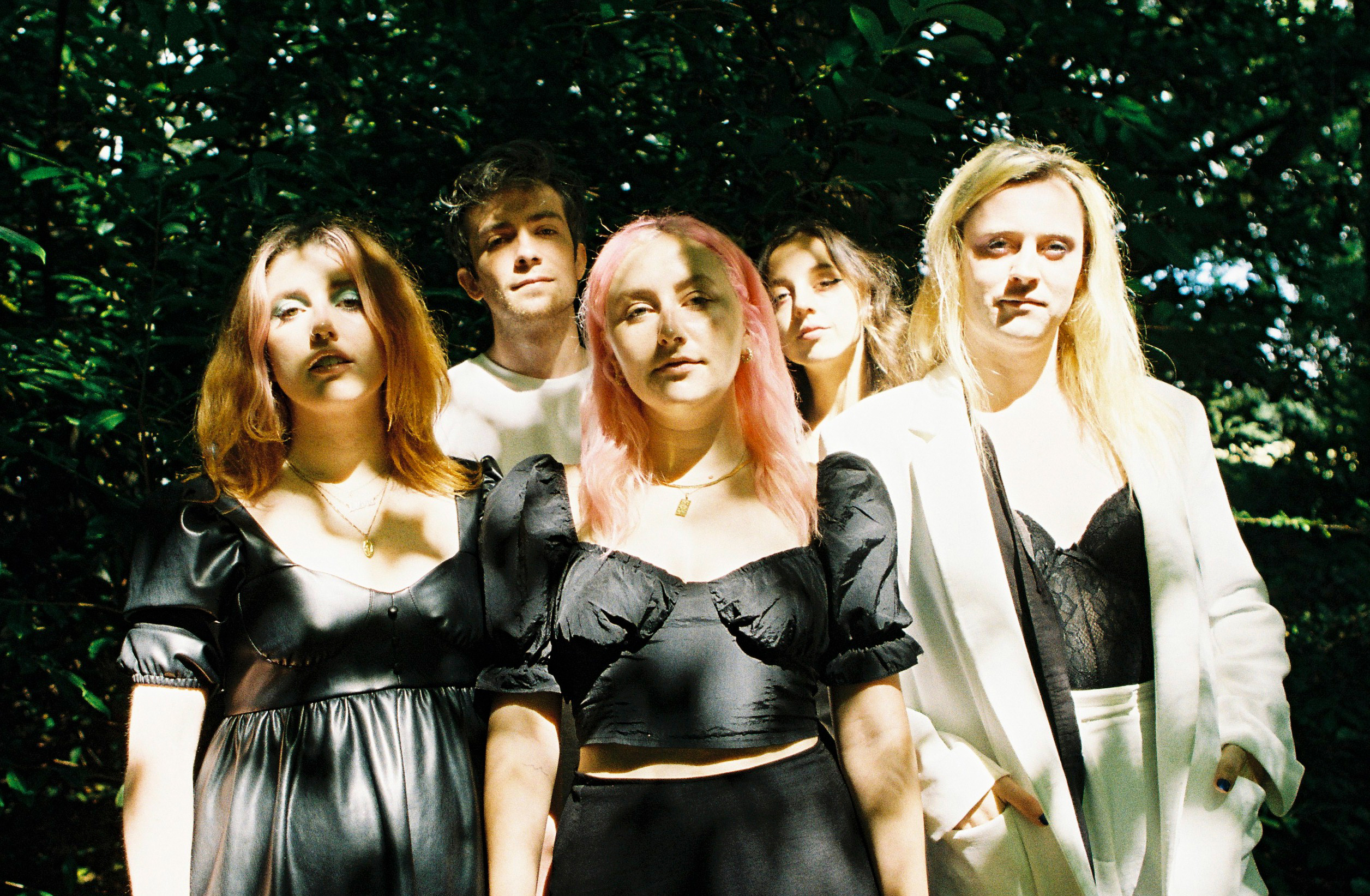
Named after the psychological theory, which lead singer Róisín Nic Ghearailt was exploring at the time of writing the record, it extends this out to examine the impact that our relations have on us and society more broadly.
It’s also charmingly relatable and searingly honest in parts. Catch them live, and you’ll see why, with a clear familial warmth and wit between them, as Ghearailt lets it all out, flanked by Constance Keane on drums, bassist and producer Jamie Hyland, fellow bassist Zoë Greenway (also the band’s creative director), and guitarist Sean Nolan. The space they’ve created for themselves is clearly liberating – with the resultant record exemplifying that beneath punk’s rough veneer, a loving message of connection sits beneath.
Róisín and Jamie gave us a few words on the making of Attachment Styles and their intentions as a band.
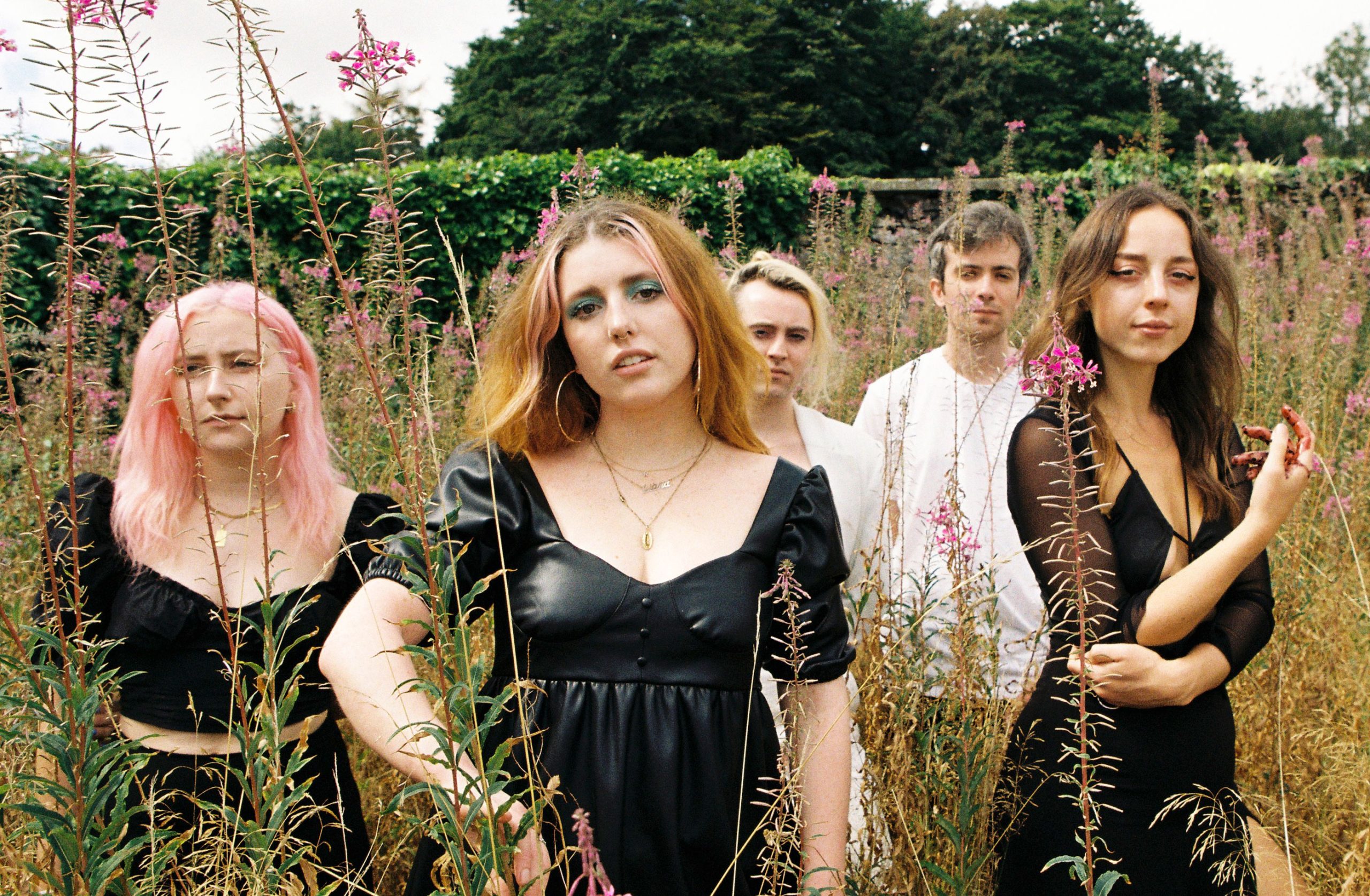
Photo: Naomi Williams
Congratulations on the debut album, Attachment Styles. How does it feel now it’s out in the world?
Jamie: It’s strange having finished my work on it so long ago. I’d almost forgotten it wasn’t publicly available. I know it’s definitely different for the others who have been working at it, kind of non-stop the whole time.
Róisín: I feel extremely peaceful about it now. I was nervous immediately after it came out, but now that it’s been over two weeks, I’m just glad people like it and that it seems to be resonating with the people we wrote it for so much.
You first formed in 2014 – so that’s quite some time until having your debut out. What’s that journey been like to having it released?
Jamie: We all went on our separate journeys for a few years, and only ‘Kim is a Punk Type Dog’ and ‘Asking For It’ were written before we came back together in 2020, so in a way, it feels like this journey has only been the last three years.
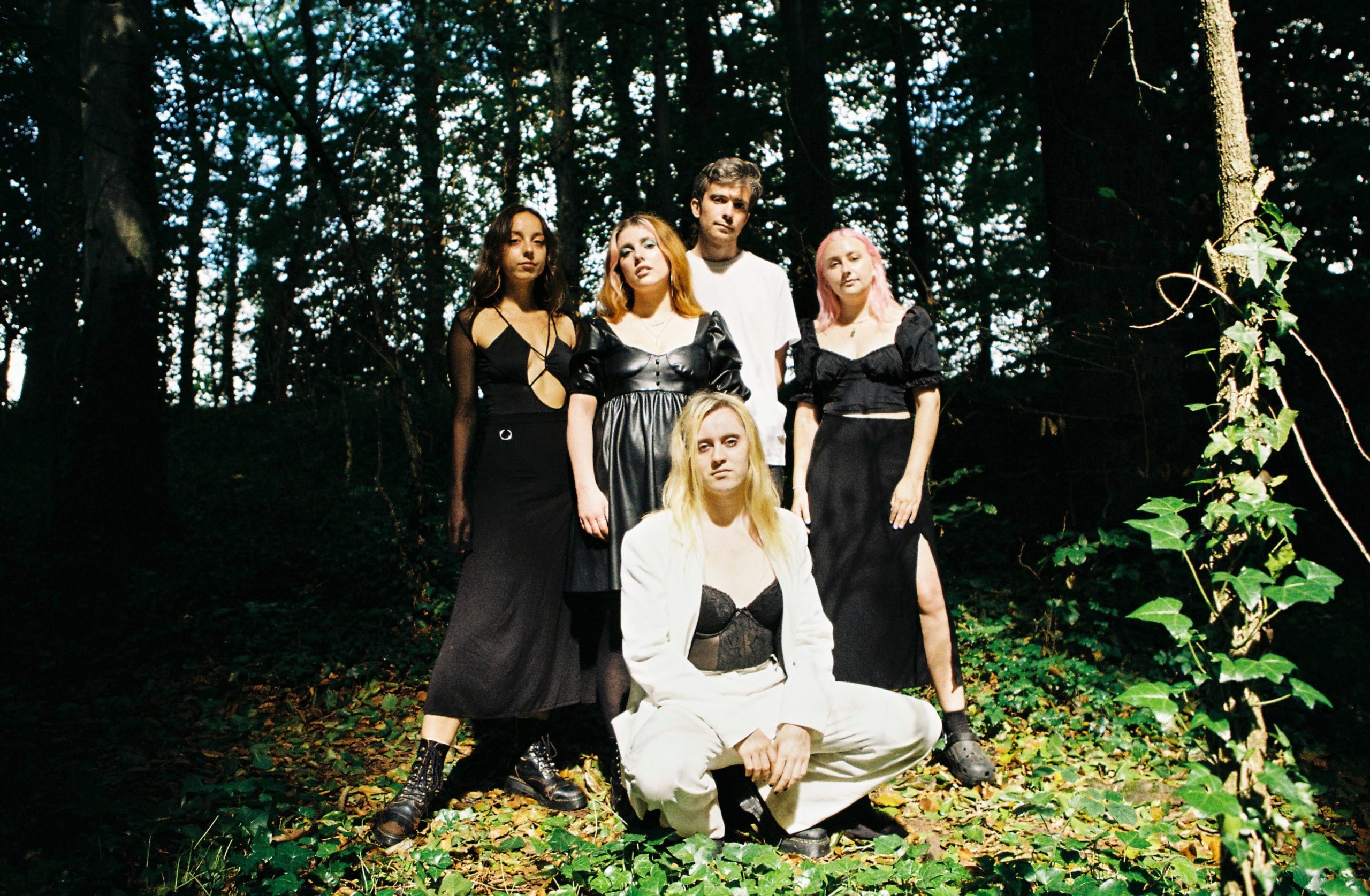
Photo: Naomi Williams
And yet, as you explained at your album launch party, you pretty much wrote the album in eight days. So what was that process like of turning it around so quickly?
Jamie: Lyrically and thematically, Ró had everything figured out in advance; aside from the other two songs, that was all we had going into write and record. And thank goodness for that, at least we had something solid we could try and write the music around. It was really fun: myself and Connie had a chest infection (which you can hear in the background of some of the songs); we were all wrecked after the three Shellac support dates, but getting to spend time with the others is always so enjoyable.
Róisín: Jamie! You little cutie! Because we all live in different places, we rarely get to actually play music together in a non-show environment. It always feels great to actually rehearse and write music. I personally found creating the album together really beautiful, and we hit a rhythm together really quickly.
As inherent in its title, the album’s lyrics draw on the theory of attachment styles. Why were you were drawn to that as a concept?
Róisín: My sister has three kids and was learning a lot at the time about attachment theory in terms of parenting. I’d been interested in it before, but that, combined with reading a book called Polysecure [by Jessica Fern], which framed Attachment Styles not just in terms of your family of origin but also the white supremacist, neo-liberal, patriarchal society we live in, made me think about how we frame emotions, and healing, and our own personal liberation.
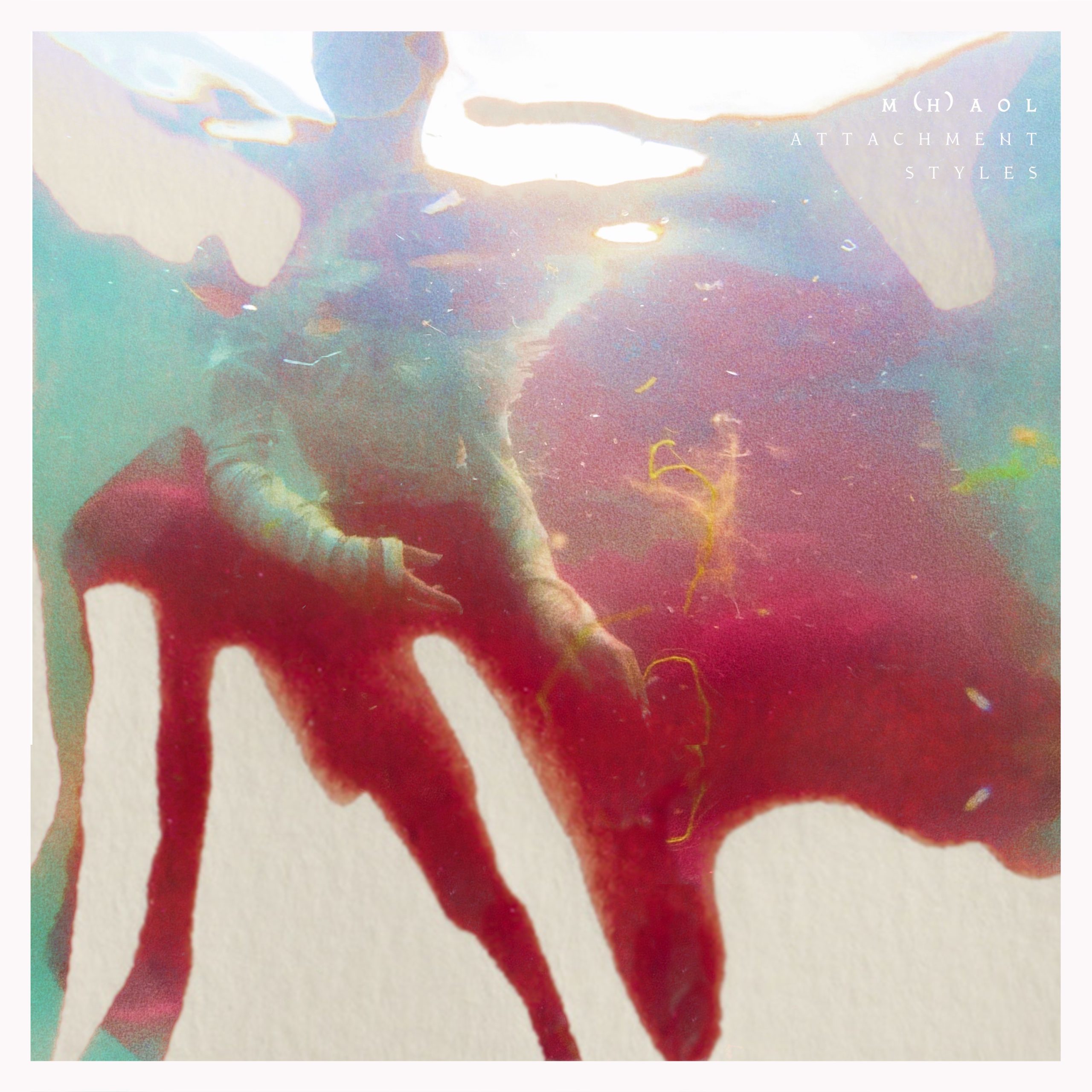
Artwork: Zoë Greenway
Your bassist, Zoe, is your Creative Director. In what ways does it help to have someone from the band map out and create your overall aesthetics?
Jamie: Having someone you trust implicitly to do the visuals for everything is such a blessing.
Róisín: Zoe really has a vision, and definitely, her visuals for the EP pushed me in my understanding of where the band could go, what direction we could take and how expansive we could be. I feel like in the band. We are always upping the ante for one another.
You’re named after the 16th-century figure Gráinne Mhaol. Why?
Róisín: She’s a really important cultural figure in Ireland. Connie wanted the band name to be connected to our feminist history, cultural legacy, and the Irish language.
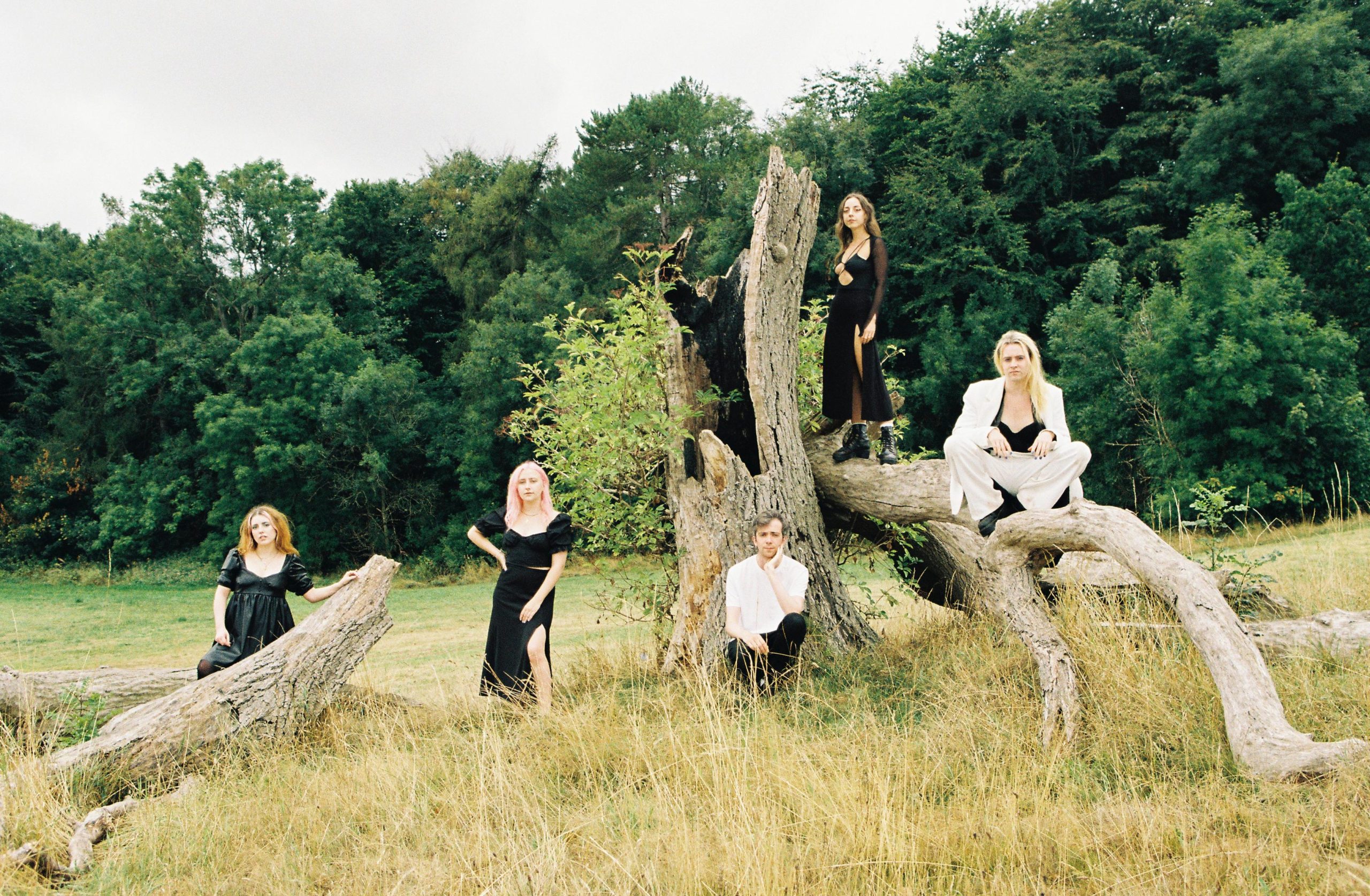
Photo: Naomi Williams
Attachment Styles has had some pretty glowing reviews (4 stars from Guardian; 7/10 from Loud & Quiet). What have you made of the response to the record so far?
Jamie: RTÉ referred to it as sounding like “two washing-machines having a fight”, so I take that as a win.
Róisín: No! They said it didn’t sound like two washing machines fighting! That was the whole thing! I love reviews. I’ll read multiple reviews of a film I don’t intend to see. I love any kind of cultural criticism. Putting out the album has been an interesting experience for me so far in letting go of expectations and trying to breathe and be like, “Well, it’s done now.”
At your album launch, you also mentioned the response to the music video for ‘Period Sex’; how it’s been shadow-banned on some platforms. What did you make of that reaction to it?
Róisín: We knew it would be political, but we didn’t think it would be that political. It’s disappointing because it’s such a joyous song, yet it’s been policed in a way that reflects society’s greater policing of queer pleasure and bodies.
You’re adding to a growing line of impressive Irish bands, especially in recent times (like Fontaines D.C. and Just Mustard). What is it about Ireland now, do you think, that’s helping to produce such quality music?
Róisín: I think Ireland has always produced quality music! We have historically been an island of saints and scholars. I think the same impulse that made all those people write poetry or books is the same impulse that brings forth music. We’ve produced an impressive amount of incredible writers and poets for such a small island.
You make no bones about having a political message as a band. What is that message, if you had to distil it, and do you think we’ve lost some of the power for music to be a truly political force in today’s climate?
Róisín: I don’t think so. This is the first time in modern history that there have been so many different kinds of artists putting out political music. If you look at people from pop queens like Rina Sawayama to even Sam Smith, to punks like Big Joanie to artists like Kae Tempest and Sudan Archives, who are talking about queerness, class, racism, belonging, joy, and sex. For me, there hasn’t been a point before in history when this could have happened.
Our message is overall a message of healing and compassion. We want to live in a compassionate society where everyone has the right to live in dignity. What does that look like? What needs to happen for us to get there? It’s the opposite of the message the Daily Mail is putting out: the radical dehumanising of so many people.
As well as having political impetus, your output is also remarkably funny at times (your track ‘Nice Guys’ in particular, I’ve found). Do you think a sense of wit and relatability is an important tool, lyrically, in getting your message across?
Róisín: That’s an interesting question. I don’t see it as a tool but rather as a more honest reflection of my personality. Humour is subjective, but I find myself very funny, and I wanted to include that element in our songs because it felt natural to me.
You have your headline tour in May. How ready are you for that? And how would you assess where you’re at in terms of live performing currently?
Jamie: To be perfectly honest, there is a fair chunk of the album that I don’t know if any of us remember how to play. We will hopefully get some rehearsal time before that starts.
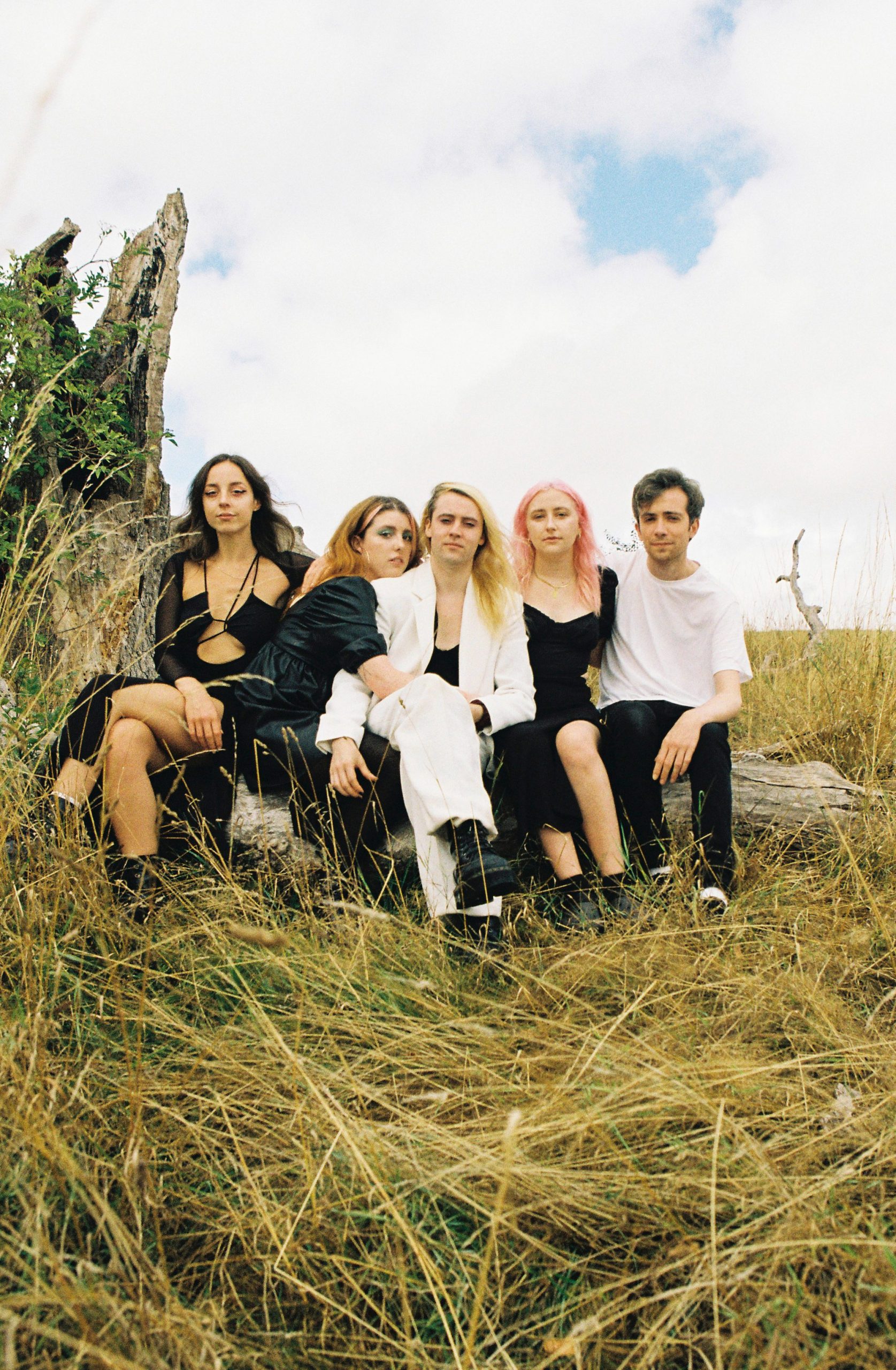
Photo: Naomi Williams
Róisín: We have a headline tour in April before the UK one in May, which we are all excited about! We’ve bookmarked two days before our Irish tour to practice and run through the album together. This is the best we’ve ever been together in terms of live performance. It’s the most natural and fun.
And what’s next for you now the album’s out?
Róisín: Touring, summer plans, giving each other hugs when we see each other. Resting, sleeping.

